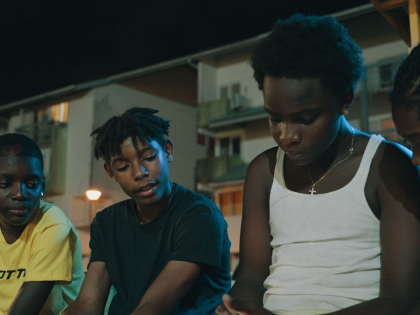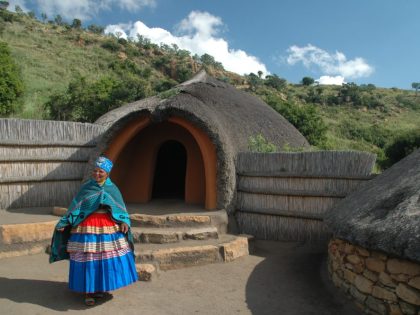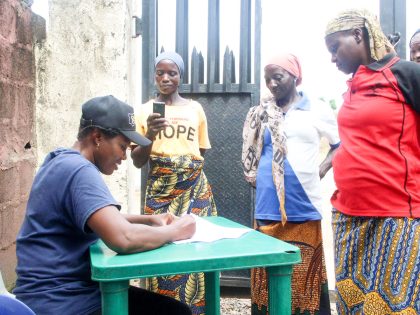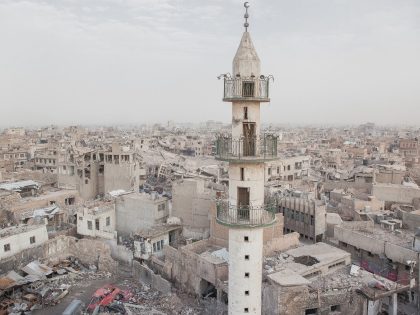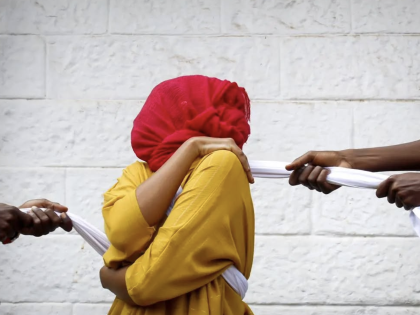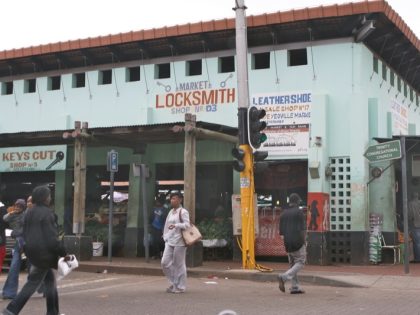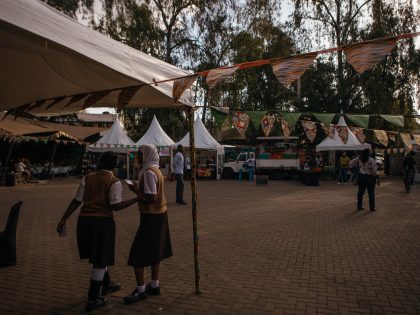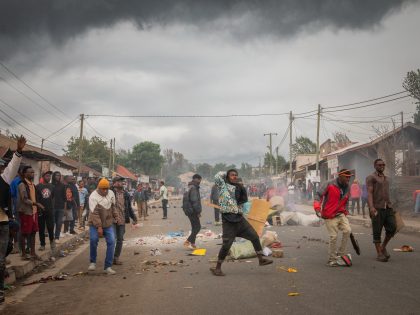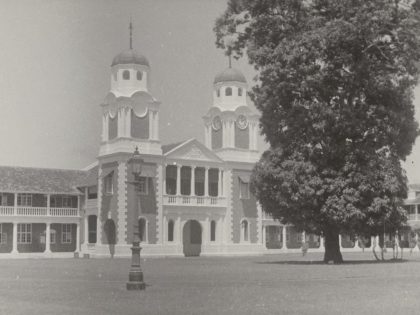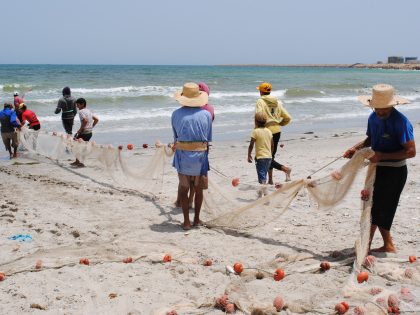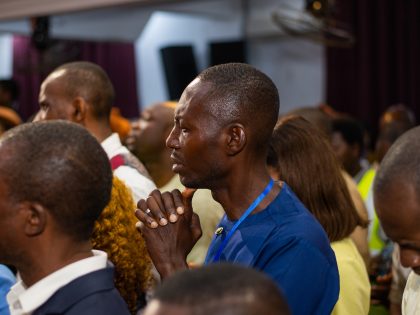A Luta Continua
In what is a victory for media freedom, a Mozambican judge rules it is “perfectly acceptable in a democracy" to criticize your leaders.

Ilha Mozambique. Image by Stéphane Neckebrock via Flickr (CC).
One day after the international day of democracy on September 15, it was truly a day of democracy in Mozambique. A court in the capital city Maputo ruled last week that the academic Carlos Nuno Castel-Branco and the journalist and editor Fernando Mbanze had not committed a crime “against the security of the state” when publishing and distributing an open letter critical of then-president Armando Guebuza. Both were acquitted after the judge gave, what the Mozambican newspaper Verdade called, a “lecture on democracy.” The presiding judge, João Guilherme, defended the economist’s right to voice his opinion and criticize government decisions because all this is “perfectly acceptable in a democracy.”
Leia no @Verdade de hoje a lição de Democracia dada ontem pelo Juiz João Guilherme #Moçambique pic.twitter.com/LZDoR1Q0Lk
— Jornal a Verdade (@verdademz) September 17, 2015
“Mr. President, you’re out of control,” began the academic’s verbal attack on the President, which was published on Facebook and reprinted in the newsletter MediaFax and other outlets in November 2013. Castel-Branco is one of the most important Mozambican academics and co-founder of the independent Social and Economic Studies Institute (IESE). His letter resonated with young people in the cities and was widely shared on social media.
Castel-Branco accused Guebuza of using the then escalating conflict with the opposition party Renamo and his handling of other security problems as a pretext for the suppression of all forms of opposition. He warned that this repression paved the way for fascism supported by big capital, alluding to Guebuza’s involvement in extractive industry. The Guebuza family and in fact many members of the ruling party Frelimo benefit from the recent natural resource boom. The boom has increased conflicts with the opposition, including Renamo, over distributing its spoils. The letter was an attempt to uphold a culture of debate that, in Castel-Branco’s eyes, Guebuza had tried to expunge by insulting those “who have ideas about national problems”—such as rising inequality as a consequence of economic growth—and could contribute to solving them by sharing their knowledge and expertise.
The letter did exactly that—generate a debate. Elísio Macamo, professor of African Studies at the University of Basel, did not agree with Castel-Branco’s accusations, but was outraged about the decision to put him to trial and saw it as a political move, as the trial was announced during an election year. In a Facebook post, Macamo criticized the emotional and personal nature of Castel-Branco’s letter, which, as he said, did a disfavor to the academic community by mixing personal animosity with productive exchange between a “critical academia and a responsible government.” He also engaged in a deeper discussion, arguing that “freedom of expression is not absolute” and that such freedom is not in danger in Mozambique in the way that some civil society actors make it seem. But he also defended the “brilliant” economist and denounced Frelimo’s silencing of dissent.
But for Frelimo—a party that has done everything to maintain its unity and cohesion since it came to power after the country’s independence in 1975—there is little space for debate. In fact, the trial was a “major test of freedom of speech and the press in Mozambique.” The public prosecutor accused Castel-Branco of libeling the president and Mbanze with abusing the freedom of the press by distributing the letter. Amnesty International warned that a conviction “would set a dangerous precedent.” The accused were “simply exercising their right to freedom of expression by speaking out about the governance of Mozambique,” Amnesty International’s Director for Southern Africa said. If it was a crime, it should have been covered by the amnesty law passed by parliament in August 2014 that tossed out all state security offenses between March 2012 and August 2014 as part of a deal with Renamo. But rather than invoking the amnesty law, Castel Branco and Mbanze sought to use the trial as a defense of freedom of expression and democracy.
Last week’s verdict is a triumph of democratic values in Mozambique, but the struggle is not over—a luta continua. Several events have demonstrated that press freedom is in danger in Mozambique. When the prominent lawyer and professor Gilles Cistac died in March this year, civil society actors believed that he had “died because he supported freedom of speech, human rights, and democracy.” Cistac argued that the Constitution allowed the establishment of autonomous provinces, which Renamo’s president Dhlakama had called for. The murder of veteran journalist Paulo Machava in August prompted the chair of Mozambique’s union of journalists to state that “This is once more a way of trying to silence journalists in our country.” Machava reported on crime and had investigated the death of well-known journalist Carlos Cardoso in 2000, who had written about pervasive corruption among the national political elite.
There are many reasons why Frelimo has limited press freedom. Chief among them is the fact that Frelimo attempts to control the flow of information on the armed confrontations it has had over the last few years with Renamo—a few days ago, Renamo president Dhlakama was attacked by unidentified gunmen that, according to one account, resembled the state Rapid Intervention Units.
Whether one sees the country in danger of sliding down the path of repression or not, the issue has been to accept to listen to difference. As Mozambican writer Mia Couto said in his recent acceptance speech for an honorary doctorate, the country needs to avoid being “selectively deaf. We listen to those who are close to us, those who obey us, those whom we like hearing. We listen to those from our own party, above all those who do not criticize us. Everything else does not exist, everything else is a lie, everything else is slander. Everything else is said by ‘the others’.” Tolerance from all sides is what Mozambique needs to overcome the seemingly everlasting polarization and achieve true reconciliation.
